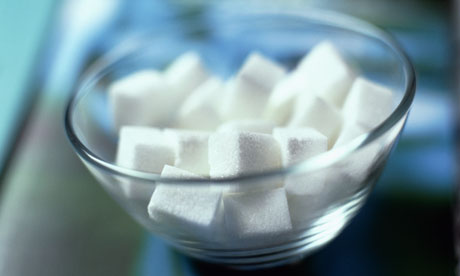
Sugar is behind the global explosion in type 2 diabetes, say researchers who claim it plays a uniquely damaging role in causing a disease that experts fear could overwhelm the NHS.
Obesity is usually cited as the main driver of diabetes. But a new study by US medical researchers identifies sugar as a predictor of diabetes separately from obesity.
The findings, published in the scientific journal Plos One, do not claim that sugar causes obesity. But they are significant because they pinpoint it as being closely associated with diabetes, a disease that at least 2.7 million Britons already have.
Researchers led by Sanjay Basu, an assistant professor at Stanford University school of medicine, examined the availability of sugar and diabetes rates from 175 countries worldwide over the last decade.
"We're not diminishing the importance of obesity at all, but these data suggest that at a population level there are additional factors that contribute to diabetes risk besides obesity and total calorie intake, and that sugar appears to play a prominent role," said Basu.
The study "provides the first large-scale, population-based evidence for the idea that not all calories are equal from a diabetes risk standpoint", and suggests sugar has "a direct, independent link to diabetes", he added.
The more sugar was available in a country, the more diabetes it had, Basu's team found. For every extra 150 calories people in that country had from all sources, the prevalence of diabetes rose by 0.1%. But if those 150 calories came from sugar – about the amount in a 12-ounce can of soft drink – then the proportion of people with diabetes rose much more, by 1.1%.
Researchers also found that the longer a country was exposed to what they called "excess sugar", the more people were diabetic. When sugar became less available, rates of diabetes fell.
Basu said that while the findings did not prove that sugar caused obesity, they did "provide real-world support for the body of previous laboratory and experimental trials that suggest sugar affects the liver and pancreas in ways that other types of foods or obesity do not".
Dr Matthew Hobbs, head of research at Diabetes UK, said the findings should be treated with caution. "At the moment the evidence is not strong enough for us to be confident that sugar consumption has a direct effect on risk of type 2 diabetes," he said.
The charity recommends minimising consumption of foods high in sugar or fat – not sugar per se – as the calories they contain can lead to people becoming overweight, which in turn heightens the risk of developing type 2 diabetes.
Sugar Nutrition UK, which represents British sugar producers, dismissed the study. "Expert reviews of the scientific evidence are clear and in agreement – sugar does not cause diabetes," said Dr Glenys Jones, its nutrition communications manager. British consumption of sugar had declined by 6% in the past decade, during which time the prevalence of diabetes had doubled, she added.
Dr Aseem Malhotra, an NHS cardiologist who campaigns against junk food, said the study "adds further fuel to the fire that sugar really is the 'silent killer' and is independent of body weight".

